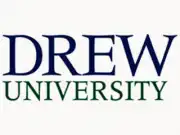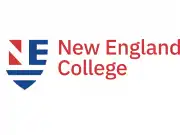Bachelor's degree programs in the USA
- Overview of Bachelor's Programs in the USA
- Features of Bachelor's Programs in the USA
- Advantages of Bachelor's Programs in the USA
- Disadvantages of Bachelor's Programs in the USA
- Admission Requirements for Bachelor's Programs in the USA
- Application Documents for Bachelor's Programs in the USA
- Job Search After a Bachelor's Program in the USA
- FAQ – Frequently Asked Questions

Bachelor of Arts - Art
Drew UniversityThe Art Department is devoted to fostering in each student who selects the Art Major the potential for creative problem solving in producing art. We ask students to work through a series of studio projects while acknowledging a strong foundation in art history and contemporary art, as well as using…

Bachelor of Arts - Art History
Drew UniversityArt History has a renowned past as a study of cultural, social, and intellectual history in the Humanities. Works of art and architecture are physical artifacts that need to be appraised on their own merits and, concurrently, as reflections of the human experience. The Art History Major investigates…

Bachelor of Science - Biochemistry and Molecular Biology
Drew UniversityThe subjects of biochemistry, molecular biology, biomedicine, and bioengineering are all areas that you could be interested in pursuing a career in. Are you interested in attending prestigious graduate institutions such as Brown, Columbia, Dartmouth, or the University of North Carolina? Beginning…

Bachelor of Science - Biology
Drew UniversityThe biology major allows students to examine the biological foundation of life from a variety of viewpoints, including ecosystems, organisms, cells, and molecules. Active, inquiry-based learning, which includes classroom and laboratory experiences, is an important component of our curriculum because…

Bachelor of Arts - Business
Drew UniversityThe Business major is a liberal arts degree that approaches business theory and practice from an integrated, diverse, multidisciplinary, and critical perspective. The major is built around a collection of introductory courses that teach fundamental abilities, a set of more advanced courses that build…

Bachelor of Science - Computer Science
Drew UniversityComputer science is based on the practice of problem solving using technology. It is rooted in the natural sciences and mathematics and has applications in many areas of the social sciences (e.g., social network analysis, human-computer interaction, etc.), the arts (e.g., interaction design), and…

Bachelor of Science - Cybersecurity
Drew UniversityThis cybersecurity program is interdisciplinary, covers the fundamentals of software security, and offers elective options that allow students to focus on software, systems, or interdisciplinary contexts. By the end of the major courses, students will be able to identify common software vulnerabilities…

Bachelor of Arts - Elementary Education K-6
New England CollegeLanguage, math, science, social studies, and child development are the cornerstones of elementary education that you will study in NEC's Bachelor of Arts (BA) in Education: Elementary Education K-6 licensing educator preparation program. By being aware of these factors, teachers may encourage young…

Bachelor of Arts - Special Education K–12 Licensure
New England CollegeThrough this professional educator preparation program, you will gain a thorough understanding of children with disabilities and how they impact every aspect of life.
Students enrolled in New England College's Bachelor of Arts (BA) in Special Education K–12 licensure program gain knowledge…

Bachelor of Arts - Physical Education K–12
New England CollegeStudents in NEC's Bachelor of Arts in Physical Education K–12 professional educator preparation program learn planning and teaching strategies that promote a child's general well-being.
Students majoring in physical education (PE) study kinesiology, biomechanics, and exercise physiology…
Briefly About Bachelor's Degree Programs in the USA
Obtaining higher education in the United States opens wide opportunities for career growth and personal development. Bachelor's programs at American universities are considered among the most prestigious in the world due to their flexible learning system, modern methodologies, and high level of graduate preparation.
A bachelor's degree in the USA is the first stage of higher education, typically lasting 4 years (in some cases 3.5-5 years depending on the program and student performance). Upon completion, graduates receive the following diplomas:
- Bachelor of Arts (BA) — бакалавр искусств
- Bachelor of Science (BS) – бакалар наук
In addition to standard BA and BS programs, many universities offer specialized degrees:
- Bachelor of Fine Arts (BFA) — for creative specialties
- Bachelor of Engineering (BEng) — in technical universities
- Bachelor of Business Administration (BBA) — in business schools
The average age of bachelor's students in the USA is 18-22 years, though many institutions actively accept "adult" students (25+ years), offering them flexible learning formats.
Key characteristics of bachelor's programs in the USA:
- Program flexibility – students can choose courses from different fields.
- Practical orientation – many courses include internships and projects.
- International recognition – diplomas from American universities are valued worldwide.
Features of Bachelor's Programs in the USA
The American education system differs from Russian and European systems. Here are the key features:
- Liberal Arts Education
In the first two years, students study general education disciplines (history, mathematics, natural sciences), then choose a specialization (major). This allows changing direction if interests evolve. - Credit System (Credit Hours)
To earn a diploma, students must complete 120-130 credits (1 credit ≈ 15-16 hours of study). - Emphasis on Independent Work
Students learn to analyze information, work in teams, and present their projects. - Double Major Opportunity
Students can simultaneously study two disciplines, for example economics and computer science. - Tutoring and Mentoring System
Most US universities provide:- Personal academic advisor
- Mentor from upperclassmen
- Career counselor
- International student coordinator
- Undergraduate Research Opportunities
Many bachelor's students participate in:- Research projects under professor supervision
- Interdisciplinary research
- Publications in academic journals
- Conferences and symposiums
Advantages of Bachelor's Programs in the USA
- High quality education – 8 of the top 10 universities worldwide are in the USA (according to QS World University Rankings).
- Wide program selection – over 4,000 institutions offer hundreds of specializations.
- Internships at leading companies – Google, Apple, Microsoft collaborate with universities.
- Flexibility and individualized approach – students can change specializations and select courses.
- International environment – students from different countries exchange experiences.
- Comprehensive student support – help centers, legal services, career placement offices
- Unique exchange programs – students can study abroad for a semester/year or earn dual degrees with partner universities
Disadvantages of Bachelor's Programs in the USA
- High cost – tuition at top universities ranges from $30,000–80,000 per year.
- Competitive admissions – requires SAT/ACT scores and high English proficiency (TOEFL/IELTS).
- Long adaptation period – different education system and culture may cause stress.
- Restrictions for international students – must obtain work visa (H-1B) after graduation.
- Additional high expenses – beyond tuition, must account for health insurance, study materials, transportation, food and housing
- Rigorous academic requirements – many universities mandate attendance, strict deadlines, regular assessments
Admission Requirements for Bachelor's Programs in the USA
To enroll in an American university, applicants must provide:
- High school diploma (GPA minimum 3.0/4.0).
- SAT (minimum 1200) or ACT (minimum 24) scores.
- English proficiency certificate: TOEFL (minimum 80) or IELTS (minimum 6.5).
- Motivation letter and/or essay.
- Teacher recommendations.
- Additional achievements (olympiads, volunteer work, sports).
To improve admission chances, it's recommended to:
- Complete pre-college programs
- Participate in university summer schools
- Have volunteer experience
- Prepare a portfolio for creative specialties
Documents for Bachelor's Program Admission in the USA
| Document | Description |
|---|---|
| Diploma + translation | Notarized English translation |
| SAT/ACT results | Minimum score varies by university |
| TOEFL/IELTS certificate | English proficiency confirmation |
| Motivation letter | Statement of purpose (500–1000 words) |
| Recommendations | 2–3 letters from teachers |
| Resume (CV) | Academic and extracurricular achievements |
| Financial guarantees | Proof of financial capability |
Job Search After Bachelor's Degree in the USA
Graduates may stay in the USA through Optional Practical Training (OPT) program, allowing work for 1–3 years depending on specialty. Popular employment fields:
- IT and engineering (Google, Tesla, Amazon).
- Finance and consulting (Goldman Sachs, Deloitte).
- Marketing and media (Facebook, Netflix).
Long-term employment requires H-1B visa (lottery).
Regional employment specifics:
- California: high demand for IT specialists
- New York: best opportunities in finance and media
- Texas: developed energy sector
- Illinois: prospects in engineering and logistics
Alternative options:
- Entrepreneurship programs for startups
- Returning to home country with US degree
- Continuing education in master's programs
FAQ – Frequently Asked Questions
- How much does bachelor's education cost in the USA?
Annual tuition at public universities – $20,000–40,000, at private – $30,000–80,000. - Are there scholarships for international bachelor's students in the USA?
Yes, some universities offer merit-based scholarships and need-based aid for international students. - Can you enroll in US bachelor's programs without SAT?
Some universities (e.g. University of Chicago) have waived SAT requirements, but most require SAT or ACT. - What English level is needed for US bachelor's admission?
Minimum TOEFL 80 or IELTS 6.5 is required. - Which specialties are most in-demand for US bachelor's degrees?
Most sought-after: computer science, business, engineering, biomedicine. - What's the minimum budget needed for bachelor's student living expenses in the USA?
Beyond tuition, approximately $12,000−18,000 annually for housing, food and other expenses depending on state. - Can you transfer from a Russian university to US bachelor's programs?
Yes, but typically no more than 50% of credits are recognized, requiring 4-8 months for detailed program comparison. - Are there quotas for international students in US bachelor's programs?
No formal quotas, but top universities rarely accept more than 10-15% international students per intake. - What exams are needed for creative specialties admission to US bachelor's programs?
Beyond standard requirements, often need portfolios, additional creative tests, auditions. - How to choose a university for bachelor's studies in the USA?
Consider: university ranking by specialty, institution size, research centers, graduate employment rates, location and climate.